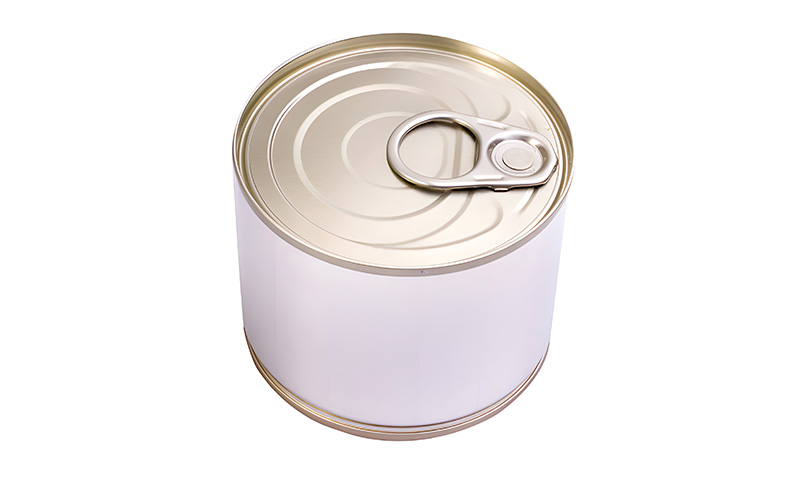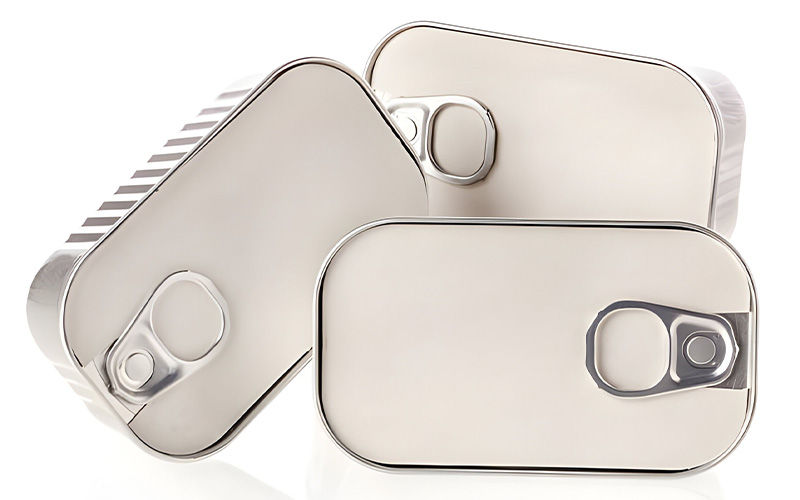Tin Free Steel Features
Also known as chromed steel, tin-free steel is created by coating low carbon steel with an ultra-thin layer of metallic chromium, followed by chromium oxide.
This product meets the ASTM A-657 standard and is manufactured using a low current density process (TFS-III). You can obtain it in rolls weighing up to 12 tons.
Its main applications are:
- Containers and lids
- Crown caps









Advantages of Tin Free Steel
Ideal for food cans, beverage cans, and general line cans. Superior Resistance to Black
Sulfide Stain:
Perfect material for making fish cans.
Unique Surface Luster:
Provides the characteristic shine of metallic chromium, even with the same surface finish as tin plate.
Coating Structure
Tin-Free Steel (TFS) is produced through an electrolytic process where steel sheets are treated with chromic acid. This process results in the steel being coated with a dual-layer film: the lower layer consists of metallic chromium, and the upper layer is composed of chromium hydroxide.
This coating not only enhances the steel’s resistance to corrosion and stains but also improves its adhesion properties for lacquers and paints, making it highly suitable for various packaging applications such as food cans, beverage containers, and industrial line cans. The unique treatment process also imparts a distinctive metallic luster, setting it apart from traditional tin plate finishes.





Applications of Tin Free Steel
Beverage Cans:
- Ideal for soft drinks, juices, and other beverages.
Food Cans:
- Suitable for packaging fruits, vegetables, soups, and fish.
All-Purpose Cans:
- Used for 18L cans, pail cans, and other general-purpose containers.
Printed Circuit Boards:
- Essential components in electronic devices.
Information Communication Apparatus Components:
- Used in various parts of communication devices and systems.
Other Containers:
- Versatile applications in different types of packaging and storage containers.
FAQs
ECCS stands for Electrolytic Chromium Coated Steel, which is another name for tin-free steel (TFS). It refers to steel that has been coated with a thin layer of metallic chromium and chromium oxide through an electrolytic process, providing it with superior corrosion resistance and a unique metallic luster.
The main difference between tinplate and TFS lies in their coatings. Tinplate is coated with a layer of tin, while TFS is coated with metallic chromium and chromium oxide. Tinplate provides excellent corrosion resistance and is widely used for food packaging, while TFS offers better lacquer adhesion and is suitable for applications where resistance to black sulfide stains is important, such as fish cans.
A TFS sheet is a steel sheet coated with a thin film of metallic chromium and chromium oxide. This coating provides the sheet with enhanced corrosion resistance, excellent lacquer adhesion, and a unique metallic luster, making it ideal for various packaging applications, including food and beverage cans, as well as industrial containers.
